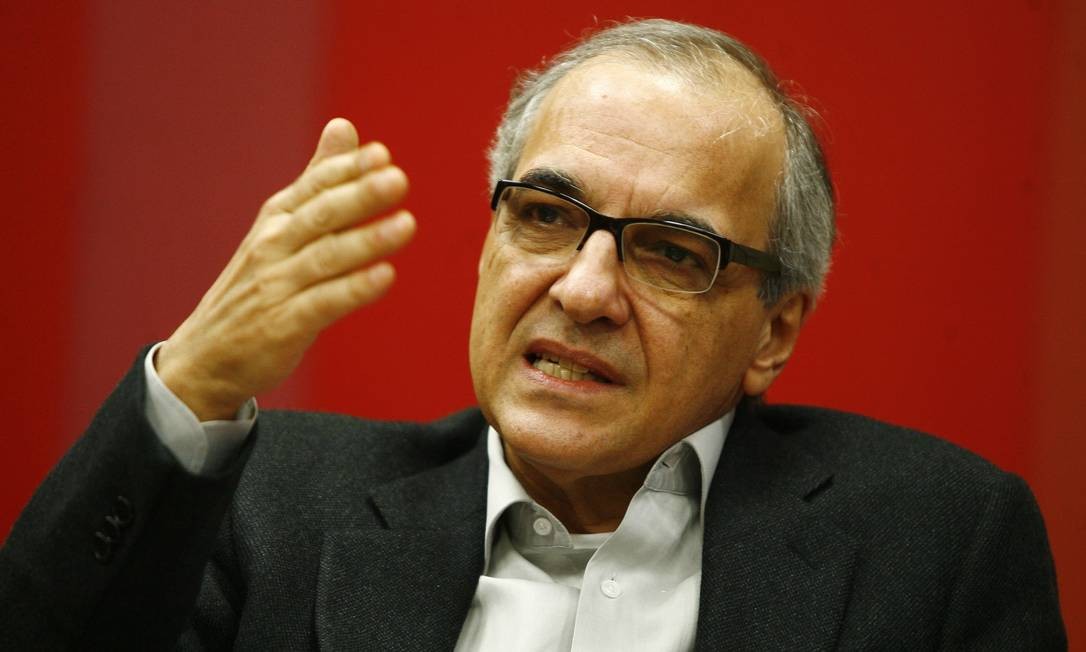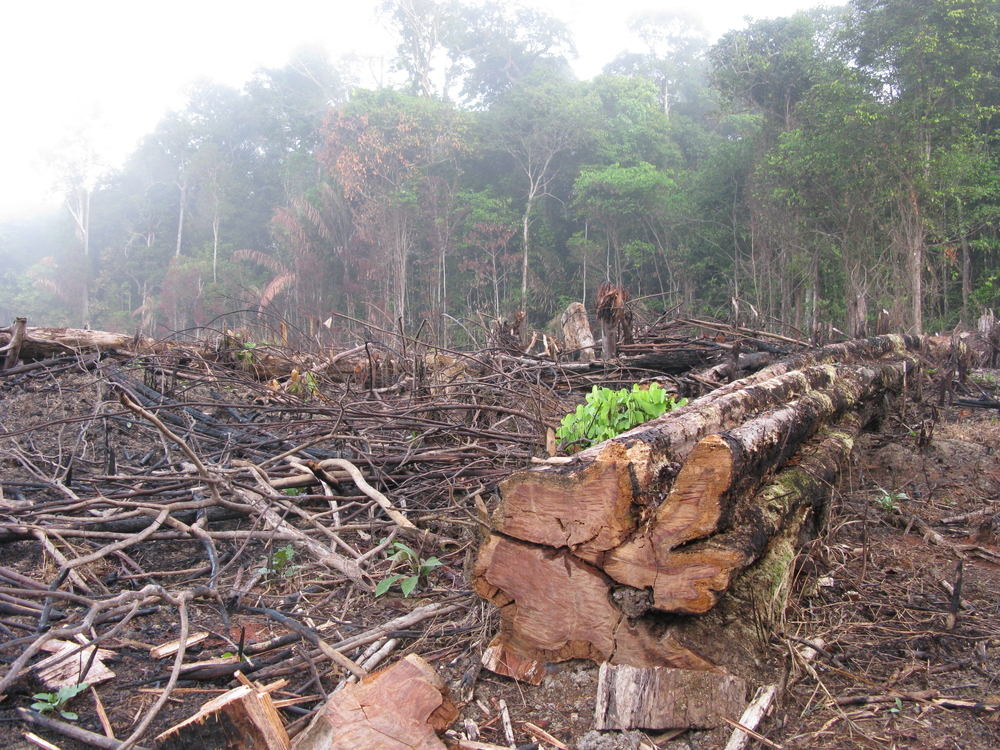RIO DE JANEIRO, BRAZIL – Neither the companies nor the government. The preservation of the Amazonian region will be guaranteed by a state agenda, which hinges on the dialogue between all the interested parties in the region.
According to Guilherme Leal, co-founder and co-president of Natura’s board, the Brazilian flop in protecting the forest compromises the country’s future and removes one of its greatest competitive advantages: its natural resources.
Natura is one of the most vocal companies in the large entrepreneurial mobilization for the protection of the forest, which comprises 40 percent of the national GDP. The cosmetic manufacturer has a lot to lose with the issue. Its image abroad is closely linked to the Brazilian biodiversity, a consequence of decades of developing products based on Amazonian raw materials, obtained in a sustainable way from the riverside and indigenous communities.

But, if Natura’s brand remains well appraised abroad, the same can not be said of Brazil’s brand, which is undermined. “Today, the significance of brand credibility in the international market is tremendous,” says Leal. “The value of brands is not only about business but also about countries. And the “Brazil brand” is undermined abroad”.
Read below the whole interview, conducted by e-mail:
Forty percent of Brazil’s GDP has mobilized to demand the end of deforestation in the Amazon. What motivates a mobilization of this magnitude, at this time?
Companies and organizations that joined this mobilization are concerned about the severity of the crisis and its social, environmental, and economic impacts. There is a clear worsening of Brazil’s negative perception abroad, with tremendous potential for damage not only to its reputation but also to the development of business and structural projects for the country.
Today, the significance of brand credibility in the international market is tremendous. The value of brands is not only about business but also about countries. And the “Brazil brand” is undermined abroad. It is an intangible value, but real. I believe that the entrepreneurial, financial, and civil society sectors have a key role in the debate and on the actions for the conservation and development of the Amazon.
We recognize that, for a long time, business has kept its distance from the sustainability debate. Now they realize that they are a crucial part of the problem and the solution.
What is at stake for Brazil, for companies, and for Natura?
First of all, the future of the forest and everything it represents in terms of socio-biodiversity and the riches that exist there, are at stake. In addition to natural wealth, cultural wealth, and knowledge. Of humankind interacting with a nature that makes its life possible, of the communities cultural diversity, of the various languages and ethnicities that live in the forest.
The Amazon is one of the greatest heritage of our country and of humanity. Some economic sectors rely directly on the standing forest. Agribusiness relies on the rains produced by the Amazon. For companies that value and invest in Brazilian biodiversity, such as Natura, preserving the forest and maintaining a healthy relationship with local communities is paramount.
Moreover, Brazil is one of the countries with greater potential to develop a circular, low carbon, and inclusive economy. And the preservation of the Amazon is an indispensable condition for this. In this respect, our opportunity to build a sustainable future for our country, where conservation and economic development walk hand in hand, is also at stake.
Brazil can indeed be an environmental leader. We have the potential to become a leader in sustainable development in a few decades and the Amazon is an important part of this. Our comparative advantage lies in our natural resources, which we need to convert into a competitive advantage.
For companies, it is important to note that real obstacles are emerging for those who are not aligned with the sustainability issue. Those who fail to adjust will struggle to access capital. There is growing pressure from the financial segment in relation to these issues, which have placed the ESG agenda as a guide for investment policies.
Does sustainability override other criteria for those seeking capital? No, but it can greatly simplify it. Simultaneously, we are experiencing a situation of high liquidity in the world. There are resources available for a new green economy and a growing willingness to invest in it. If we move forward in regulating the carbon market, in serious conservation projects, etc., we have significant money from abroad available to come to Brazil.
What can the business sector do to protect the environment?
We believe that companies should be the players of broad transformations in society and not mere means of wealth generation. One of our strongest beliefs, expressed about 30 years ago and alive today, is that the value and longevity of a business, are linked to its ability to contribute to the evolution of society and its sustainable development. It is up to companies to be aware of all the environmental externalities it causes and to take measures to eradicate the negative ones.
If it is not possible to eradicate them in the short term, they must be reduced, mitigated, or, at least, offset. They also need to promote the total traceability of their production chains, seeking the inclusion of indirect suppliers who may be involved in environmental issues. This can be done in several ways, among them the environmental education of the chain and incentives or favorable trade conditions, for instance. But, it is important to clarify that companies alone will not “save” the Amazon.
In fact, no organization or sector will solve the problem in isolation. The overcoming of such a complex challenge will only be possible through a collective and articulated effort, of which the companies must be part. The bet must be on collective intelligence.

Is there a dialogue with the government? At what level (ministerial, executive, etc.)?
The question of the Amazon is not one of the government, but of the State. And the presence of the State there, in all its instances, is paramount to the region’s development. The action of the State today is fragmented. There will be no solution without dialogue with the different instances of the State. We believe that we will only reach solutions to the crisis in the Amazon through an open and cooperative dialogue with the different sectors of society.
All levels of government have a tremendous relevance and power of transformation. It is a key actor in this process, which needs to live up to the enormous responsibility it has before society. I’m also talking about the local level, the city halls, the municipal departments, the people in the front line. Without them, there is no viable solution. It is this search for dialogue that we are conducting in the ‘Concertação pela Amazônia’ (Cooperation for the Amazon) initiative.
The main goal is to institutionalize a plural and democratic debate in Brazil aimed at the region’s sustainable development. So far, we have connected with some 200 relevant players, which include not only the government but also indigenous leaders, anthropologists, entrepreneurs, economists, journalists, etc.
In the government specifically, we have already engaged in dialogue with various spheres, such as vice-president Hamilton Mourão, president of the National Council of the Legal Amazon, with the Ministries of Agriculture and Environment, and the BNDES (National Bank for Economic and Social Development). We have also talked with the Consortium of Northern Governors, with Mayors, City Councilors, and with representatives of the judiciary and the Prosecutor’s Office.
What is greater, the international pressure from European countries, the pressure from investors, or the pressure from consumers?
The three groups are very relevant. Europe, despite not having so much weight in exports, dictates trends and can influence the way Brazil is perceived worldwide. We know that foreign investments are required for any national development project and this capital flight we are witnessing now is of great concern.
Consumers are the tip of the chain and a mass rejection to Brazilian products can have very serious consequences. It is the most difficult group for managing perceptions given its scale and diversity. Moreover, we can not forget the pressure of the media, which is also very relevant.
The fact is that there is a growing perception on the relevance of ecosystem services provided by the Amazon in view of researches showing that climate change and biodiversity loss are currently a global risk.
For Natura & Co, which has an image very tied to the environment and, in particular, to the Amazon, can the maintenance of an anti-environmental policy by the government imply financial losses?
The environmental issue is not limited to a single company. We are facing a systemic problem, which jeopardizes the economic development of the whole country. As I said, the Amazon provides ecosystem services, which are indispensable for a number of economic activities and for people’s daily lives. Brazil needs a strategy to face the climate crisis. Because of its biodiversity and energy matrix, the country should be a leader on a green recovery agenda.
We have seen an intensification of demand for companies to operate in value generation not only for shareholders but for all their stakeholders. Thus, there is greater pressure and search for information on what we are doing in the Amazon. I consider this pressure positive because it has contributed for the sectors to articulate themselves and produce effective answers.
Source: Exame

